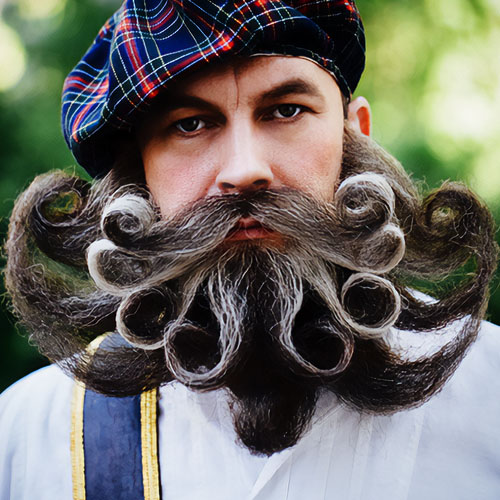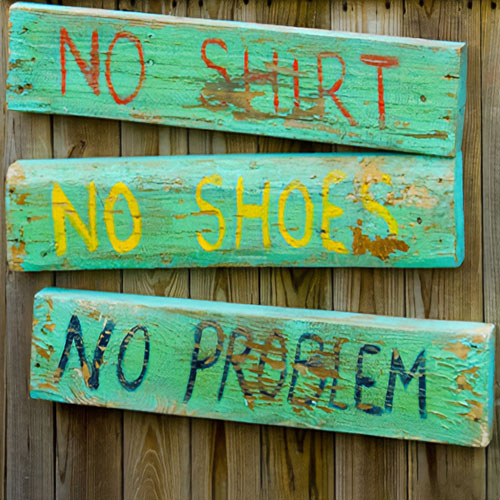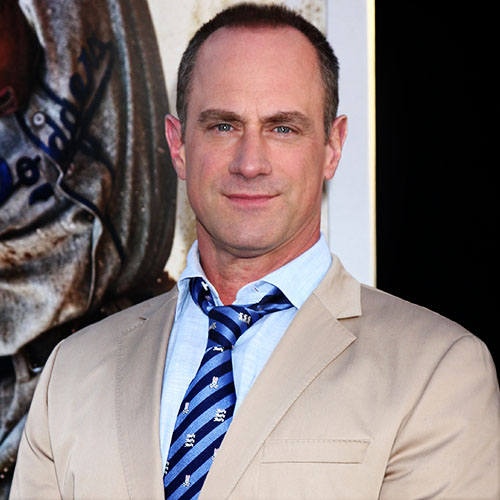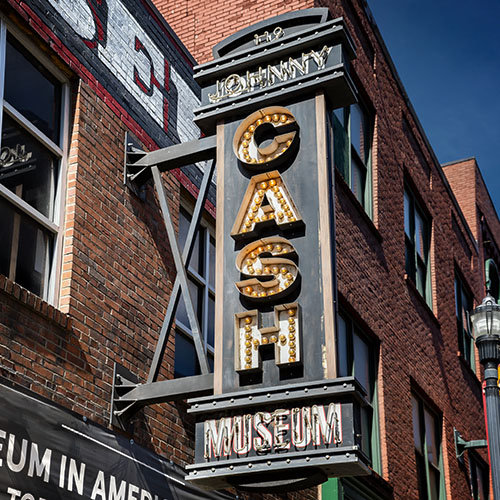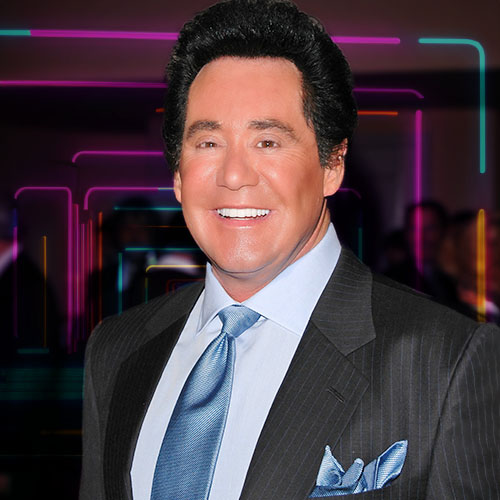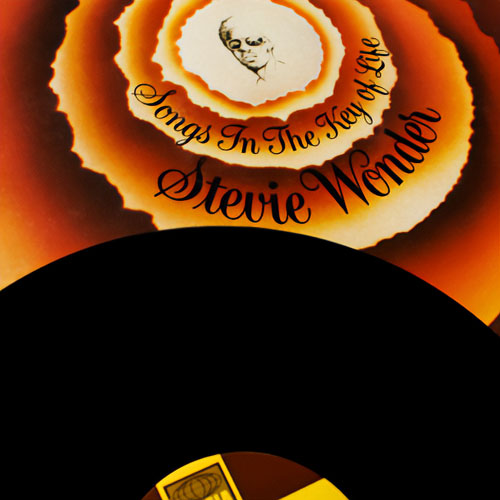Nineteen eighty-seven was the lowest ebb of Elton John’s career. He had undergone an operation for a mysterious throat ailment, rumored to be cancer.
He’s Still Standing
His marriage to the German studio engineer Renate Blauel was foundering. He had launched an unsuccessful lawsuit to regain copyright to his most famous songs, like “Daniel” and “Goodbye Yellow Brick Road,” from his former publisher, Dick James. He was having problems with alcohol, drugs, and eating disorders. His career seemed in irreversible decline. It was now that he became the target of a tabloid newspaper expose unique even by Fleet Street’s long history of victimization and untruth.
In this exclusive excerpt from Elton John (Harmony Books), rock biographer Philip Norman reveals how Elton found the will to face his detractors head-on.
What The Sun was shortly to unloose on Elton did not happen in isolation. For five or six years already, he had been the target of anti-gay smears and sneers in Britain’s tabloid press, a public whipping boy for the growing phobia about AIDS. The unwritten law that rock stars never sue allowed things to be written about him that in any other context would instantly have drawn libel writs. The Daily Express, the Daily Star, The People, and the News of the World had all, at one time or another, had their knives into Elton. It was just that, true to form, The Sun sank lowest.
Early in 1987 the paper had received a tip-off from one of its network of paid spies and informers. The tip-off led to a 19-year-old male prostitute, or rent boy, named Stephen Hardy, who told a story calculated to make any Sun man salivate. He claimed to have attended gay parties at the home of Rod Stewart’s manager, Bill Gaff, in Finchampstead, Berkshire, and to have been involved in drug taking and homosexual orgies there with Elton John.
No one can object to a tabloid publishing an expose, however nasty, if sufficient informed sources have been found to corroborate it. Behind the screaming headlines of old-fashioned scandal sheets could always be found the most meticulous delving and triple-checking. To The Sun, however, the unsupported word of Stephen Hardy was basis enough for another great coup in the tradition of “Gotcha!” and “Freddie Starr Ate My Hamster.” Hardy was paid 2,000 pounds for his revelations, with further regular sweeteners of 250 pounds.
“Elton in Vice-Boys Scandal” was The Sun’s four-deck front-page splash on February 25. There followed the “confession” of Stephen Hardy under the alias Graham X. He claimed to have been the pimp who had recruited teenage rent boys for parties at Billy Gaff’s house, specifically as sexual partners for Gaff and Elton. Over a period of months, he said he had supplied “at least ten youngsters, who were each paid a minimum of 100 pounds each, plus all the cocaine they could stand.” According to Graham X, aided by The Sun’s distinctive typography, Elton “LOVED his boys to be tattooed skinheads or punks with spiky hair, SNORTED cocaine throughout the orgies, which lasted up to four days, and BEGGED the teenagers to indulge in his bondage fantasies. The sordid rent-boy sessions began just 18 months after Elton’s highly publicized Valentine’s Day marriage to German bride Renate Blauel.”
The story was presented not as an exultant soft-porn feast, but as a solemn moral duty, with Graham X, in the bosom of The Sun, now reformed and penitent. “I am ashamed of what I did … I am speaking out to show how widespread this sort of thing is and to warn other gullible young kids to steer clear of people like these.”
Inside, hammering home the moral message, was a double-page spread, “Elton’s Lust for Bondage,” in which Graham X “confessed” to his own sexual encounters with Elton at Billy Gaff’s house. He said that on the first occasion, Elton had been lying on a bed in a pair of skimpy leather shorts, “looking like Cleopatra and twirling a sex aid between his fingers.” Elton, he claimed, had shown him bondage accessories, “handcuffs, a chain, leather braids, and a whip,” and had fantasized about tying him to a tree in the woods before making love to him. On a later occasion, he said, he had witnessed a foursome between Elton, Billy Gaff, and two rent boys, which had ended with them swapping partners.
Ironically, it was none of this spunout sleaze, but the spurious attempts to give it social uplift, that would prove The Sun’s undoing. In a foot-of-page “box” story, Graham X told how he had repented his rent-boy life after falling in love with a girl, but had carried out one final pimping mission to pay for their engagement ring. So “he took two youngsters to Gaff’s home on April 30 last year. It was the last time he saw Elton.”
It was the only specific date mentioned in the whole story, and in The Sun’s office there was someone who recognized it as deeply unsafe. Nina Myskow had returned to the paper a few months earlier after a stint as TV critic for The People. Knowing she was a longtime friend of Elton’s, The Sun’s legal adviser showed her the Graham X copy a couple of weeks before publication. Nina still kept up with Elton intermittently and was sure she remembered that on April 30, 1986, he and his assistant, Bob Halley, had both been out of Britain. “I said, ‘If you’re going to go with this stuff, for God’s sake make sure you check and double-check that date.’ “ Her advice fell on deaf ears.
In fact, on April 30, 1986-as many more of his friends, like Bryan Forbes, remembered-Elton had been in New York, staying at the Carlyle Hotel. He had had lunch with his old confidant Tony King, then gone to see his costume designer, Bob Mackie. Any number of people could confirm that he had remained in New York one further night, flying home, with Bob Halley, by Concorde early on May 1.
That one slip, if nothing else, opened up The Sun to a massive libel suit. Even so, there were those around Elton who urged him in the strongest terms not to sue. Mick Jagger, in particular, phoned to warn against it, citing his own experience with the News of the World 20 years earlier. That, too, had arisen from the grossest of factual boo boos. Jagger had been accused of boasting about his drug consumption in an interview with News of the World reporters, who did not realize they were actually talking to another Rolling Stone, Brian Jones. Jagger had issued a libel writ, only to be followed and spied on by the paper until finally set up for the Redlands drug bust that led to his and Keith Richards’s imprisonment. If Elton tried to fight The Sun, even on this seemingly winnable count, what campaign of still dirtier tricks could be expected before the case finally came to court?
In Jagger’s view, the best course was to follow rock-star precedent since 1967 and just take it until it stopped.
Elton disagreed. On the day of The Sun’s first Graham X stories, a writ for libel arrived from his solicitors. So full of confident glee was the paper at this stage that its second front-page Elton John “world exclusive” next morning bore an additional tag: “The story they’re all suing over.’’
In this installment, “Elton’s Kinky Kicks,” Graham X claimed that Elton would snort cocaine through rolled-up $100 bills “to set himself up for orgies with rent boys,” and that he insisted his youthful partners also be “drugged with massive amounts of coke before they were brought to his bed.” A second inside spread, “Elton’s Drug Capers,” alleged, through Graham X, that Elton would take as many as three “lines” of cocaine in an hour, sometimes dividing it up with an American Express Gold credit card, and throwing the $100 bills away after he’d used them. Here, too, the 19-year-old uneducated rent boy expanded into psychological analysis. “It was as though he needed the drug as a crutch because he believed in some strange way that the boys wouldn’t talk to him if he wasn’t stoned on drugs.”
A bold-type sidebar announced, on a note of palpable triumph, that Elton was suing over the first day’s story and that his lawyers had unsuccessfully sought a High Court injunction to halt the series. Continuing the public-service motif, it was said that Scotland Yard had begun an investigation into the whole matter, and was preparing to interrogate Graham X. “Tomorrow … “ a streamer at the bottom promised, “Elton’s Pink Tutu Party.’’
The Sun’s chief rival, the Daily Mirror, was not about to let The Sun off the hook. Next morning, it produced a second story, “The Big Lie,” offering documentary proof that Elton had not returned from New York to Britain until May 1, 1986. The Mirror had found his and Bob Halley’s names on the passenger list for Concorde’s 9:30 A.M. flight, and obtained a copy of the invoice from the limousine company that took them to JFK Airport. On the Concorde manifest, Elton’s name bore a special notation, “famous singer,” in case he should not be recognized. The airport limo had been driven by a man named Walt.
The Sun, meanwhile, had adopted the time-honored voice of editorial courage, and was “standing by” its story. Instead of the promised revelations about a “pink tutu party,” its third Graham X installment was the rent boy’s retort that “Elton can say what he likes, but deep in his heart he knows I’m telling 100 percent the truth [sic]. I know why he is saying he has never met me or been to bed with boys I supplied for him and Billy Gaff. He wants to protect his image as the Royal favorite, loved by millions of fans. I’m sorry to have to tell his wife, but he did have sex with the teenagers I brought to Gaff’s home …. “ The front-page headline that familiar Sun device of turning quote into editorial comment-was “You’re a Liar, Elton!”
The slip-up over the date was certainly unfortunate. But The Sun had infinite faith in its own power as a newsprint bludgeon. It believed that if it kept hitting Elton, he would eventually cave in, the way people always did. The chance of eventually winding up in court would be of little account against the damage suffered meantime, not just by the victim himself but also by his family, business associates, and friends.
Elton was aware of all the risks. He knew what a drawn-out battle with a totally ruthless tabloid might do to his mother and stepfather, and the many other respectable, inoffensive members of his family. He knew what it might do to the football club in whose junior enclosure he had often appeared, presenting children with Easter eggs. He knew what it might do to his social life and several royal acquaintances. Above all, he knew what it might do to his already strained and vulnerable marriage. His biggest fear, Nina Myskow remembers, was that Renate would be hurt.
Nonetheless, the dogged John chin was firmly stuck out. “Elton’s Kinky Capers” brought a second libel writ. “You’re a Liar, Elton!” brought a third. Estimates of the damages he would be seeking rose from five million to 20 million pounds. His solicitor, Frank Presland, said that as long as the Graham X series continued, the writs would keep on coming.
Elton himself, still in Australia, put on a lighthearted front. Acting as emcee at a record-awards ceremony, he was defiantly full of his usual camp one liners. A female guest admired a brooch he was wearing. “You get one of those when you sleep with a queen,” Elton told her. To a male guest, he said he’d always thought “bondage” was a surfers’ beach in Sydney. His hair had become platinum blond, cut in a star shape high above the ears. “Blondes have more fun,” he explained.
The only press interview he would give was to John Blake, who had written the Daily Mirror’s “Big Lie” story. This time there was no joking. “I have traveled the world and seen a lot of things, but I have never even heard of any orgies with underage boys. And I swear I have never, ever seen anything like the things that were described. The outfits I was supposed to have worn, and all the rest of it, were just plain ridiculous.
“No matter what happens, I will go into court, swear on the Bible, and tell the truth about everything. I’m going to nail the paper that wrote all those lies. I’m doing it to clear my name, not for the money. But 50 million pounds would not be enough to compensate for all the harm they have done me …. I don’t care what comes out in court about my life. They can throw every single thing at me, and I’ll still nail them.”
Elton’s 40th birthday party was held at Lockwood House, a ten-bedroom Georgian mansion that his manager, John Reid, had lately acquired, near Rickmansworth, Hertfordshire. NATO-style security surrounded a bash as munificent as any thrown in the spendthrift seventies. Guards with Doberman pinscher dogs checked passes before allowing access to the lit-up house and the five marquees on its grounds. The 350 guests included rock superstars George Harrison, Ringo Starr, Eric Clapton, Phil Collins, Bob Geldof, and Lionel Richie, designer Zandra Rhodes, actors Sir John Mills, Hazel O’Connor, and Britt Ekland, film directors Ken Russell and Michael Winner, impresarios Richard Branson and Mickie Most, local M.P. Tristan Garel-Jones, and the entire Watford football team. Just before midnight, the duke and duchess of York arrived, racing up the drive in a chauffeur-driven Jaguar, followed by a car full of armed Special Branch men. “The Yorks,” at least, seemed unworried by what The Sun said.
Renate’s nonappearance on such a night could lead to only one conclusion. It was confirmed next day by a press announcement from John Reid’s office. Elton and Renate had decided to “continue living apart,” though there were no plans at present for a divorce and they remained on “very good personal terms.” In particular it was emphasized that the separation had nothing to do with The Sun’s rent-boy claims, which had come after their decision to part and which both found “deeply distressing and intrusive.”
The Sun’s coverage managed to combine voyeuristic relish at the split with sycophantic slaving over Fergie’s presence at the party and further stabs at Elton on the rent-boy question. The front page splash, “Elton Ends Sham Marriage,” made it all seem the inevitable result of Graham X’s revelations, and promised a further “dossier” linking Elton with teenage boys “back to the 1970s.” The center spread, “A Marriage Built On Lies,” listed all Elton and Renate’s previous press quotes about their marriage, each with the word lie beside it. The implication was that his word about rent boys could not be believed, either. On the same page, schizophrenically, was “Royal Raver! Fergie’s Night of Star Magic.”
Outwardly, The Sun appeared as brassily confident as ever. But behind the death-dealing three-inch heads and white-on-black thunderbolts, things were starting to go awry. In particular, twinges of skepticism were tardily being felt about that world exclusive’s one and only source. It was finally borne in on The Sun’s great editorial brains that a hard-up rent boy might not be the most reliable or truthful person.
To stop rival papers from getting to Stephen Hardy, a task force of Sun heavies had smuggled him, his girlfriend, and their baby out of Britain, keeping them for a month at secret addresses in Paris, Malaga, and Gibraltar. All this effort and expense was wasted, however, when the Daily Star found a gay picture magazine named Vulcan for which Hardy had posed three years earlier. “Exposed! The Worm That Turned on Elton” chortled the Star. The two unedifying pictures of a scrawny nude boy were accompanied by character notes that caused further wincing over at The Sun’s Wapping fortress. “When he walked through the door, we knew he was trouble,” said a man who had been at the Vulcan photo session. “He is capable of doing anything for money.”
The obvious urgent need, if Graham X could not be trusted, was to find other rent boys able to tell the same tale. In earlier times, such work would have been entrusted to hard-digging reporters. The Sun, however, chose as its investigator a young Scot named John Boyce, a former rent boy who professed nine criminal convictions for fraud and one for attempted murder. Boyce was offered 1,750 pounds for every signed affidavit he could deliver from a rent boy claiming to have slept with Elton. Of this, the rent boy would receive 500, while Boyce pocketed the remainder. He later described his work method in a television interview: “We used to bring people to hotel rooms and they would tell us that they had an affair with Elton John and, you know …. I mean, it was all pure crap.”
Besides which, the game plan against Elton, mysteriously, wasn’t working. The Sun was hitting him with everything it had, but he still wasn’t turning tail and running. Every new world exclusive that was expected to produce a hasty climb-down instead produced a further libel writ. The more people urged him to give in and cut his losses, the more resolute Elton became. He would repeat what he had said on the phone in response to Mick Jagger’s advice that it wasn’t worth it. “They can say I’m a fat old sod, they can say I’m an untalented bastard, they can call me a poof, but they mustn’t lie about me, because I’m going to fight. And I’m determined to be a winner.”
On April 13 The Sun struck again with “Elton Probe: Heavy Mob Move In.” The story was that gay men who had agreed to cooperate in the “Elton John investigation” were now suffering “vicious attacks and threats of violence.” One “gay couple” had had their house broken into, their furniture smashed, and dog excrement smeared on the walls, and a message for The Sun informant had been left behind: “It will be his kneecaps, not the furniture, next time.” A second “witness” was said to have been warned via a phone call to his elderly mother to “keep his nose out of other people’s business or we’ll cut it off for him.” A third had been menaced by “heavies” in a pub, and “several more” had received threatening phone calls.
“There is no evidence to suggest that Elton is aware of these attacks,” The Sun continued magnanimously. “But it is known that certain violent elements of the pop-gay community [sic] are incensed by our revelations.” Readers were left to draw their own conclusions from a picture of Elton in gangster looking dark glasses, over the subhead “Singing to Beat a Killer,” which only close inspection revealed to be unconnected with the criminal underworld. “Elton sings at Wednesday’s AIDS fundraising concert in London,” the caption noted in a miniature classic of weasel probe. “Friends say he would be horrified to think people were threatening gays in revenge for The Sun’s revelations about his escapades with rent boys.”
With libel writs out, both sides were under legal obligation not to comment further on the case. The Sun, however, showed no signs of honoring the sub judice rule. And pressure was growing on Elton to make some kind of public statement about the torrent of accusations against him.
Meanwhile, within the barbed-wire compound at Wapping, all was far from well. The Sun had believed its gamble on the rent-boy story would be justified by huge rises in circulation. But its marketing people reported a strange phenomenon. On days when it ran an Elton John expose, circulation actually fell. On piece de resistance issues like “Elton John Photo Shame,” the fall could be as much as 200,000 copies. When no Elton John story occupied the front page, sales returned to normal once more.
The fact was that even Sun readers, who otherwise seldom balked at their daily dose of brute prejudice and leering smut, did not like seeing Elton on the rack. Seventeen years of being publicly decent, sane, and positive-as well as adding immeasurably to life’s fun-paid off for him now in spectacular dividends. Even those whom the “revelation” had titillated at first soon wearied of its grinding overkill. The Sun had lost what credibility it ever had as a moral crusader and merely seemed to be pursuing a vendetta.
The paper’s proprietor, Rupert Murdoch-whom Elton described as a “praying mantis” – had always hitherto allowed it to rampage unchecked. But even Murdoch was becoming concerned that the exposes could do him more harm than good. His media empire in America and Australia included many TV stations that could well suffer retaliatory withdrawal of Elton concert films and videos. As a rule, libel actions against his newspapers represented the merest small change to Rupert Murdoch. But he seems to have had a premonition long before any of his hapless minions that this one would cost him dearly.
In September, its reporter in the Thames Valley, covering Old Windsor, filed a story that two rottweiler guard dogs on Elton’s estate had had their “voice boxes sliced through “ to prevent them from barking. With the story – a revealing insight into The Sun’s editorial procedures – came a note from the reporter saying he was not 100 percent sure it was true.
“Mystery of Elton’s Silent Dogs “ led the next day’s paper nonetheless, under a thin guise of concern for dumb animals. R.S.P.C.A. officials were said to be “furious “ at the “evil and outrageous operation “ on the rottweilers. The only quoted source was “one of Elton’s staff,” who claimed to have seen the dogs on the Woodside grounds, being walked by a guard on a long lead. “They looked frightening,” the source had allegedly said, “but all they could do was snarl and whimper. Afterwards, one of Elton’s men said they couldn’t make any noise because they’d had their voice boxes cut. Nobody on the grounds would know the dogs were still there until it was too late. They’re like silent assassins.”
With the spread went a large picture of an open-mouthed rottweiler and a reminder that the “most savage breed in the world … will not release their jaws when locked on a victim.” The clear insinuation was that the dogs had to be mutilated to make their attacks on trespassers even more terrifying.
The story was nonsense, as The Sun found out within hours of running it. One of its photographers, dispatched to Old Windsor to get pictures of the silent assassins, reported back that he could find only two Alsations, both with barks in working order. As a spokesman for Elton confirmed soon afterward, those were the only dogs he owned. His solicitors, meanwhile, had issued his 17th libel writ.
Its entrails all over its desert boots, The Sun still kept on slugging. October 15 brought a new front-page splash, in which only trained eyes could detect signs of desperation: “Yard Bid to Grab Sun File on Elton.” Scotland Yard detectives were said to have demanded access to the paper’s dossier on “Elton’s sordid sex life,” believing it of “substantial value “ in long term investigations into the corruption of young boys. The dossier, “gathered during months of inquiry into London’s sordid vice trade,” was said to contain testimony from “dozens of rent boys … along with pals and former associates of Elton.”
Next day came news of one legal action, at least, in which The Sun could claim unequivocal victory. A judge at the Old Bailey had refused the police a court order to seize the dossier. Its contents, whatever they might be, enjoyed full legal privilege, having been collected in defense of a libel action.
The unkindest cut of all for The Sun was that its original rent boy informant, Stephen Hardy, had now fallen into the hands of its archrival, the Daily Mirror. On November 6 the Mirror administered the coup de grace, an interview with Hardy under the heading of “My Sex Lies Over Elton.” “It’s all a pack of lies,” Hardy was quoted as saying of The Sun’s original world exclusive. “I made it all up. I only did it for the money, and The Sun was easy to con. I’ve never even met Elton John … I’ve never been to one of his concerts or bought one of his records. In fact, I hate his music.”
On January 16 The Sun mustered a last full front-page assault, “Elton John Quizzed by Vice Police.” Elton was said to have been questioned “for three hours” by the head of Scotland Yard’s Vice Squad, Chief Superintendent Bill Carnie, and two other senior detectives at his solicitor’s office in Lincoln’s Inn. But, by previous standards, the reporting was almost eerily circumspect. “At 9:06 P.M., the Vice Squad men left, but Mr. Carnie would only say: ‘There is no statement.’ Elton … was escorted to the waiting car by his lawyers. The star shook their hands, then smiled briefly for a Sun photographer, saying, ‘Thank you, gentlemen.’ “ The only result of this meeting – if, indeed it took place in the way The Sun claimed was to eliminate him from any police inquiries on any subject whatever.
The end was officially confirmed on November 18. Elton and Renate were to divorce “by mutual consent … and with no fault attaching to either party.” He was especially emphatic on that point, remembering his own parents’ divorce and the way his mother had been named as the guilty party.
A bleakly formal statement from Renate was issued via John Reid’s office.
“Both of us have been and will be so busy with our own work commitments that we are seeing too little of each other. And for that reason it seems unavoidable that we are growing apart. We are, however, parting on the most amicable terms and genuinely intend to remain best friends. Moreover, we are both confident that all personal matters will be resolved without any animosity. I am obviously saddened to see our marriage end, and I wish Elton all the happiness in the world, and I know that he wishes me the same.”
The orgy of tabloid headlines was generally sympathetic in tone. With each one went the wedding day picture of boatered, wing-poke bridegroom and bewildered bride, as unreal now as figures under glass in a shake-up snowstorm. Today’s full-color extravaganza used an all-too-inviting simile: “Elton’s Marriage Flickered and Went Out Like a Candle in the Wind.”
The Sun called them “Bride ‘n’ Doom,” surrounding the words with a broken-heart shape. Two inside pages explained “Why the Odd Couple Were Destined to Get Divorced,” helped by one picture of Elton giving a kiss to Phil Collins, another of him with his arm around George Michael, and a third of him dressed as a pantomime dame. Significantly, however, there was no mention of cocaine, orgies, or escapades with rent boys.
Elton apart, there had been signs all through 1988 that the tide was turning against The Sun. Its persecution of the dying TV star Russell Harty, another “self-confessed “ homosexual, aroused widespread protest and brought a memorable denunciation by actor and playwright Alan Bennett from the pulpit at Harty’s memorable service. More flak flew when, in reporting the horrific Ealing Vicarage rape case, it ignored all conventions of decency and identified the victim. Then, in October, it went too far with the royal family, ending a longstanding convention that the queen never answers back. To obtain a first sight of Fergie’s new baby daughter, The Sun hijacked a royal-family group photograph destined to be the queen’s next Christmas card. The queen brought proceedings for breach of copyright and Scotland Yard’s Serious Crime Squad began an investigation into how the picture had been misappropriated. The Sun was forced to pay 100,000 pounds to four palace-nominated charities and publish a groveling front page apology.
To add to all this, its bully boy muscle had been resisted in unprecedented fashion. The “poofter “ pop star had not turned tail and run. Its Elton John expose must be defended in court, using a chief witness who had already confessed, in the columns of its greatest rival, that he’d told “a pack of lies.”
In the libel action over Graham X’s allegations against Elton, The Sun knew it stood no chance whatever. What it still could do was make that trial a personal nightmare for Elton, bringing forward its other witnesses to smear him and reporting everything under the protection of full legal privilege. If the paper was going down, it would have the consolation of taking Elton with it.
At this point, Elton’s lawyers pulled off a coup that can only be called dazzling. They arranged it that the first libel case into court was the subject of Elton’s 17th and last writ-the instantly disprovable allegation that he owned rottweiler dogs whose barks had been silenced. The Sun was thus faced with an action in which its muckraking would be useless, one which it had to lose and which would, moreover, unleash hysterical laughter up and down Fleet Street. The case of the voiceless rottweilers was set to begin in the High Court on December 12 before Mr. Justice Michael Davies. But lawyers from Wapping were already talking to lawyers from Lincoln’s Inn.
Later that week, Nina Myskow was invited to dinner with Elton and John Reid at Reid’s house. “When I got there, Elton took me outside into the drive,” Nina remembers. “He said, ‘I’ve won. The Sun are going to pay me a million pounds.’ Then he burst into tears.”
On December 12, the morning that the rottweiler libel action was due to open in the High Court, The Sun’s splash headline was two words: “Sorry, Elton.” As a rule, in British papers apologies are minuscule paragraphs in legalese, buried at the foot of inside pages. Never before had one appeared this way as a lead story in house-style prose, every word of it approved in advance by the aggrieved party’s lawyers:
The Sun last night agreed to pay megastar Elton John one million pounds libel damages.
The settlement followed allegations published in the Sun last year about his private life.
A delighted Elton said last night: “This is the best Christmas present I could wish for.
“Life is too short to bear grudges, and I don’t bear the Sun any malice.”
Later, a Sun spokesman apologized to Elton for running the stories, which they acknowledge to be completely untrue.
The spokesman said: “We are delighted that Elton and the Sun have become friends again and are very sorry that we were lied to by a teenager living in a world of fantasy.”
Elton said: “Now I welcome the fact that my name has been cleared.”
The settlement included the Sun paying damages concerning an article about Elton’s alleged cruelty to dogs.
The spokesman said: “We accept that he loves his pets and we are very sorry we suggested otherwise. “
The Sun is paying Elton’s legal costs.
Inside, Elton repaid the compliment by giving The Sun an exclusive interview. The rottweiler of Fleet Street was transformed to a fawning puppy dog as it proudly told how its late quarry was “fighting fit and ready for action,” having lost 28 pounds in less than two months. The interview itself was presented in a manner verging on the schizophrenic. “Things hadn’t gone well for me in 1987, and I was feeling desperately depressed,” Elton was quoted as saying. “I needed to get fit and healthy again after the worst year of my life.” A second installment retailed his views on current pop hits, under the strapline “When Stars Make Friends, They Make Friends With the Sun.” Having failed to pierce his jugular, the paper now seemed intent on licking Elton to death.
















